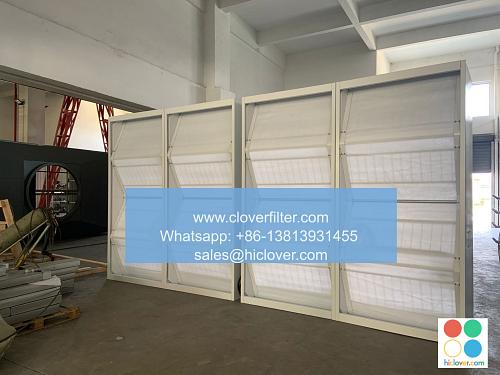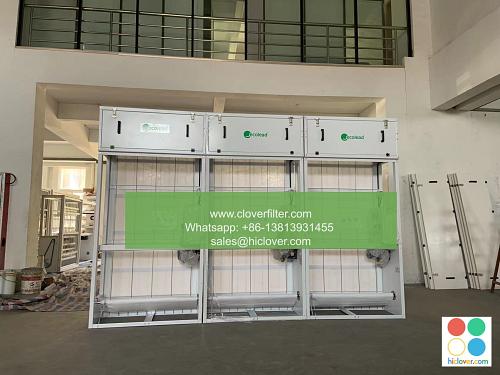Air Filter Implementation in Food Processing Facilities

The food processing industry is a highly regulated sector that requires meticulous attention to detail to ensure the quality and safety of products. One critical aspect of maintaining a clean and safe environment in food processing facilities is the implementation of effective air filtration systems. In this article, we will delve into the importance of air filter implementation in food processing facilities, highlighting various application areas and key considerations for optimal performance.
Why Air Filtration is Essential in Food Processing Facilities
Air filtration is vital in food processing facilities to prevent contamination and ensure the quality of products. Airborne particles, such as dust, pollen, and microorganisms, can easily contaminate food products, leading to spoilage, recalls, and even foodborne illnesses. Effective air filtration systems can remove these contaminants, maintaining a clean and safe environment for food processing. Some of the key benefits of air filter implementation in food processing facilities include:
- Improved Indoor Air Quality (IAQ): Air filtration systems can remove airborne particles, reducing the risk of contamination and improving the overall IAQ in food processing facilities.
- Enhanced Food Safety: By removing microorganisms and other contaminants from the air, air filtration systems can help prevent foodborne illnesses and reduce the risk of product recalls.
- Increased Efficiency: Effective air filtration systems can also help reduce energy consumption and maintenance costs, leading to increased efficiency and productivity in food processing facilities.
Application Areas for Air Filtration in Food Processing Facilities
Air filtration systems can be applied in various areas of food processing facilities, including:
- Production Areas: Air filtration systems can be installed in production areas to remove airborne particles and microorganisms, ensuring a clean and safe environment for food processing.
- Packaging Areas: Air filtration systems can also be installed in packaging areas to prevent contamination and ensure the quality of packaged products.
- Storage Areas: Air filtration systems can be used in storage areas to maintain a clean and dry environment, preventing spoilage and contamination of stored products.
- Clean Rooms: Air filtration systems are essential in clean rooms, where the risk of contamination is high, and the air must be highly filtered to prevent particle contamination.
Types of Air Filters Used in Food Processing Facilities
Various types of air filters can be used in food processing facilities, including:
- HEPA (High Efficiency Particulate Air) Filters: HEPA filters are highly effective in removing airborne particles, including microorganisms, and are often used in clean rooms and production areas.
- Activated Carbon Filters: Activated carbon filters can remove odors and volatile organic compounds (VOCs) from the air, improving IAQ and reducing the risk of contamination.
- Pre-Filters: Pre-filters can be used to remove larger particles from the air, extending the life of more efficient filters, such as HEPA filters.
Key Considerations for Optimal Air Filter Performance
To ensure optimal air filter performance in food processing facilities, several key considerations must be taken into account, including:
- Filter Maintenance: Regular filter maintenance is essential to ensure optimal performance and extend the life of air filters.
- Air Flow Rates: Air flow rates must be carefully calculated to ensure that air filters can effectively remove airborne particles and microorganisms.
- Filter Selection: The selection of air filters must be based on the specific needs of the food processing facility, taking into account factors such as IAQ, food safety, and energy efficiency.
Conclusion
In conclusion, air filter implementation is a critical step in ensuring the quality and safety of products in food processing facilities. By highlighting various application areas and key considerations for optimal performance, food processing facilities can select and install effective air filtration systems, maintaining a clean and safe environment for food processing. As the food processing industry continues to evolve, the importance of air filtration will only continue to grow, making it essential for facilities to stay up-to-date with the latest technologies and best practices in air filter implementation.
You haven’t asked a question or provided any context. Please provide more information or ask a specific question so I can assist you better. I’ll do my best to provide a helpful and direct response. What’s on your mind?


